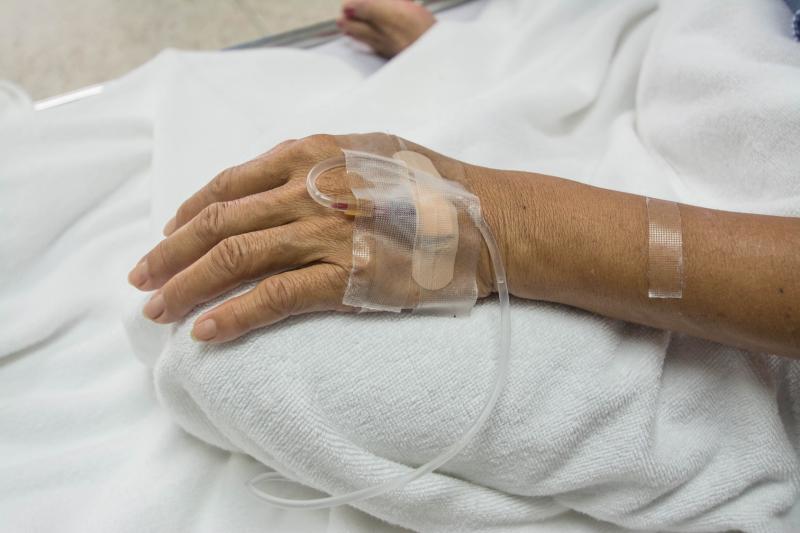
Interleukin (IL)-6 blockade with sarilumab shows potential in the treatment of severe COVID-19 pneumonia with systemic hyperinflammation, with patients showing overall clinical improvement and survival within roughly a month, according to the results of an open-label study.
The study included 56 patients (median age, 56 years; 78 percent male) with severe COVID-19 pneumonia (PaO2/FiO2 <300 mm Hg) with hyperinflammation (elevated inflammatory markers and serum IL-6 levels). Of these, 28 were administered sarilumab 400 mg intravenously in addition to standard of care, and the other 28 were treated with standard of care alone.
All patients were on high-flow oxygen supplementation, and most were also undergoing noninvasive ventilation due to moderate acute respiratory distress syndrome (ARDS; PaO2/FiO2 ratio, 100–200 mm Hg with a PEEP ≥5 cm H2O) or severe ARDS (PaO2/FiO2 ratio <100 mm Hg with a PEEP ≥5 cm H2O).
At day 28, 61 percent of patients showed clinical improvement and 7 percent died in the sarilumab group. These numbers were not significantly different from those in the control group (64 percent and 18 percent, respectively).
Among sarilumab-treated patients, predictors of clinical improvement were baseline PaO2/FiO2 ratio >100 mm Hg (sensitivity, 100 percent; specificity, 58 percent; area under the ROC curve [AUC], 0.78; p=0.01) and lung consolidation <17 percent at CT scan (sensitivity, 100 percent; specificity, 75 percent; AUC, 0.91; p=0.006).
Compared with standard of care alone, sarilumab was associated with shorter time to clinical improvement among patients with lung consolidation <17 percent (median, 10 vs 24 days).
Sarilumab was generally safe, with the rate of infection and pulmonary thrombosis similar in the two treatment groups.
The present data suggest that use of sarilumab in severe COVID-19 patients may lead to faster recovery in a subset of those showing minor lung consolidation at baseline, has the potential to reduce mortality, and does not increase the risk of severe secondary infections, the researchers said.